Toyota harbors big ambitions for "partner robot" business
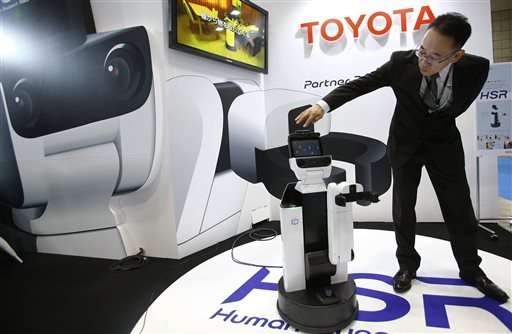
Toyota Motor Corp. is harboring big ambitions to become a significant player in the growing market for robots that help the elderly and other people get around in everyday life.
The company believes it can use its manufacturing expertise to become as crucial in a field it calls "partner robots" as it is to auto-making. Robotics engineers at Toyota currently number only 150 out of a worldwide staff of 300,000 but it is plowing money into research and development.
Toyota last month announced a $1 billion investment in a research company headed by robotics expert Gill Pratt in Silicon Valley to develop artificial intelligence and robotics. It is already working with Stanford University and the Massachusetts Institute of Technology on robotics.
"We are preparing for a future in which people may not be able to drive cars, or they may need artificial intelligence to support them to drive, and once they get off their cars they may need help from partner robots," said Akifumi Tamaoki, general manager of Toyota's partner robot division.
The Japanese government is banking on robotics as a growth industry in a society that's aging at a faster pace than any other industrialized nation. Other companies have jumped in, including Internet company Softbank Corp., which is selling a humanoid that carries on simple conversations.
Speaking to The Associated Press at a Tokyo robot show this week, Tamaoki said Toyota's robotics interests go back decades, including their use in manufacturing at its auto plants. But it now sees the technology as a viable business in its own right.
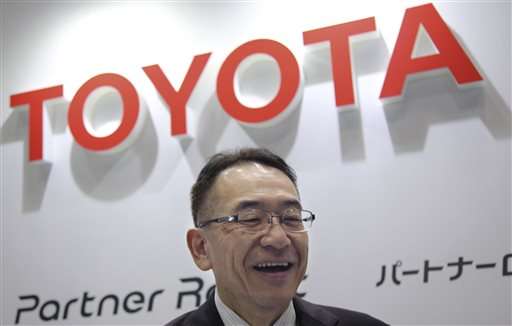
Some of that impetus comes from the focus of the auto and tech industries on using artificial intelligence to develop cars that can drive autonomously. Google Inc. is trialing driverless vehicles and Toyota's Japanese rival Nissan Motor Co. is especially confident about the technology with plans to start selling such vehicles by 2020.
Honda Motor Co. was a leader in robots with its Asimo walking and talking child-shaped robot, in development for more than two decades. But critics say that effort got sidetracked by focusing too much on duplicating human movements and behavior, and lost sight of trying to be useful.
Honda officials acknowledge the company went through soul-searching after getting targeted with public criticism when Asimo could do nothing to help people after the March 2011 nuclear disaster in Japan.
Toyota demonstrated a one-armed partner robot on-wheels loaded with sensors and cameras, earlier this year. The R2-D2 lookalike known as HSR, or Human Support Robot, can pick up after people, bring an item to the bedside or open curtains.
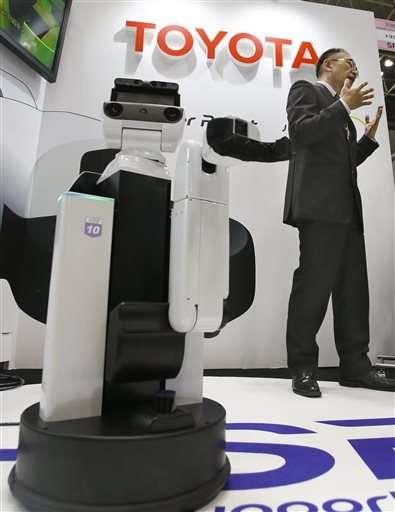
The robot, an improved version of a model first shown in 2012, is not yet for commercial sale. Toyota is collaborating with 10 universities in Japan, with plans to extend that to overseas academic organizations next year, to develop practical uses, Tamaoki said.
Tamaoki believes robots like HSR will gradually become widespread, although that may take another decade.
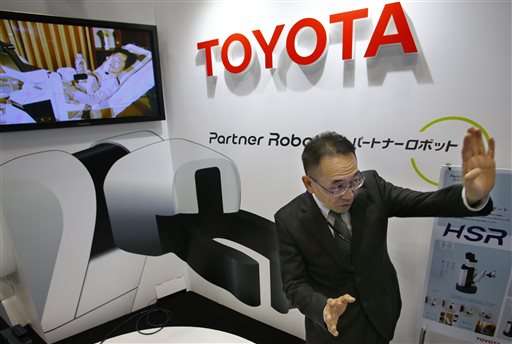
Among the developments in the works for HSR is another arm, which will allow it to perform more complex tasks, and adding conversational skills. It now comes with a flat panel that works like a videophone or video player, but can't talk.
One research group has proposed using it for taking care of pets, such as jiggling a toy for a lonely cat, according to Toyota.
-
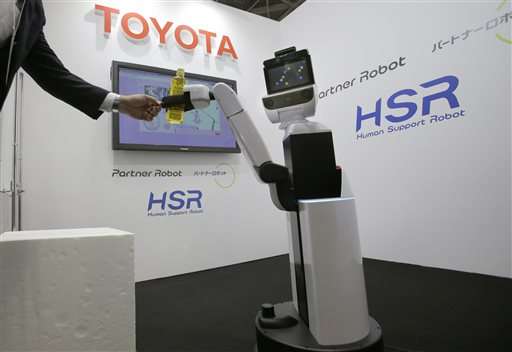
In this Dec. 2, 2015 photo, Toyota Motor's partner robot HSR, or Human Support Robot, demonstrates at the International Robot exhibition in Tokyo. HSR can pick up after people, bring an item to the bedside or open curtains. (AP Photo/Shizuo Kambayashi) -
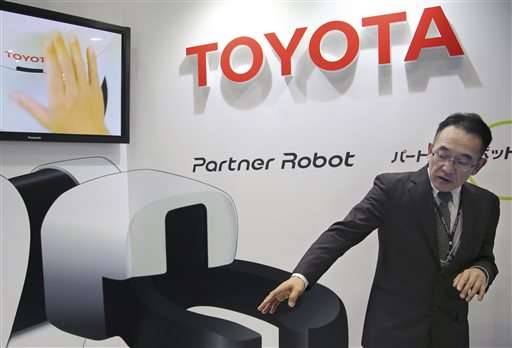
In this Dec. 2, 2015 photo, Akifumi Tamaoki, general manager of Toyota Motor Corp.'s partner robot division, speaks during an interview at the International Robot exhibition in Tokyo. Toyota Motor Corp. is harboring big ambitions to become a significant player in the growing market for robots that help the elderly and other people get around in everyday life. (AP Photo/Shizuo Kambayashi)
© 2015 The Associated Press. All rights reserved.





















